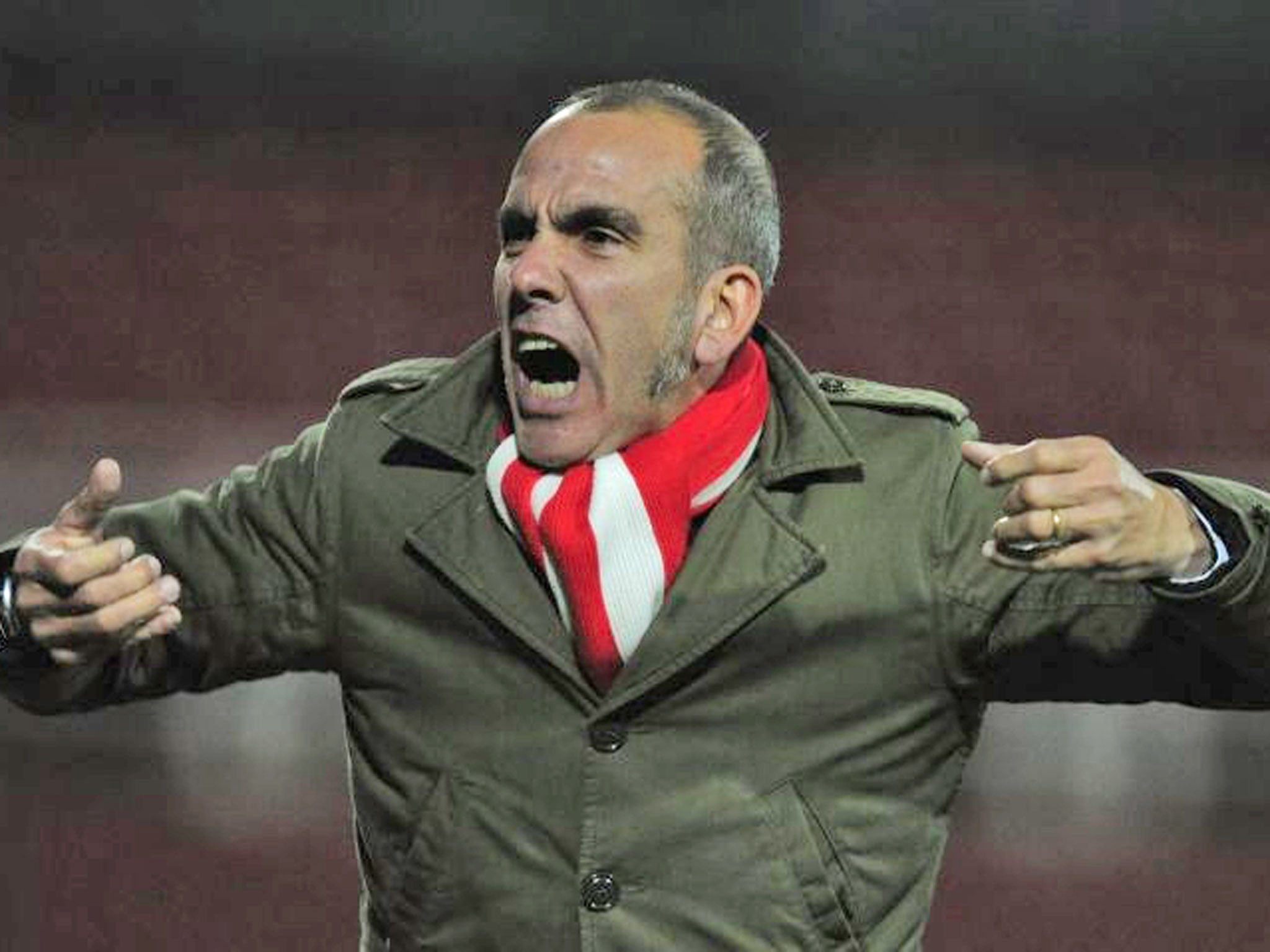Sunderland: Paolo Di Canio to offer starkest contrast to Martin O'Neill's style
Italian as emotional and impetuous as predecessor was thoughtful and methodical

The breakdown of a relationship – for that is what it was – between Martin O'Neill, the Sunderland manager, and Ellis Short, the Sunderland owner, centred on one key element. O'Neill did not think the players he had inherited 16 months earlier were good enough to meet the expectations of the American. The squad, he said, "lacked true, real quality". Short thought it did not.
In such a situation one man loses. On Saturday night, in conversation over the telephone with Short, following a miserable defeat at the Stadium of Light, albeit against Manchester United, the champions-in-waiting, O'Neill found out a football certainty: you cannot take on a chairman with bad results. O'Neill has supported Sunderland for 49 years of his life; he had managed them for less than two. By the time the 9pm call was ended, so was his time in charge.
Key statistics did for him.
Sunderland had won just four games at home this season. They currently sit bottom of the Premier League form table. They have picked up only three draws from their last eight Premier League games. They could not beat at home a Norwich side who played the majority of the match with 10 players following the dismissal of their goalkeeper.
Short's total investment in Sunderland is reckoned to be more than £100m. Relegation this summer would be disastrous, with a new television deal next season expected to add a further £30m to the turnover of any club which plays in England's top division.
By the time Short phoned O'Neill on Saturday night, Sunderland were one point off a relegation place. Those close to the owner felt he could not risk relegation as he waited for the spark O'Neill provided last season to rekindle. O'Neill repeatedly called for time. This was his first full season at Sunderland, having taken over a team in the bottom three at the beginning of December 2011. He spent £30m on Steven Fletcher, Adam Johnson, Danny Graham and Alfred N'Diaye. Only Fletcher has flourished. On Saturday night, Short felt that without a change he risked losing Premier League status and after trying Roy Keane, Ricky Sbragia, Steve Bruce and O'Neill, he now brings in Paolo Di Canio with a simple enough brief: he has to get more out of the players.
The contrast between the appointments of O'Neill – 27 years of managerial experience, almost 900 games – and Di Canio – one club, fewer than 100 games – is stark. O'Neill is thoughtful and methodical, Di Canio emotional and impetuous.
"I believe I am at a stage now where I am a Premier League or Championship manager," the Italian wrote after leaving Swindon Town in February. "The right place for me is the place that has the ambition and the staff who want to bring in a winning mentality. The club needs to have set rules, which for me are discipline, desire, passion, work ethic and a determination to get the right results to make everybody happy, namely the board, the fans and the club's players and staff."
That is more what the boardroom at Sunderland wanted to hear, despite its lofty ambition. Such aspiration is a big enough ask for a conservative manager.
Di Canio's Swindon reign was littered with colour and controversy. The club lost the sponsorship of the GMB Union on announcement of his appointment because of his association with fascist politics. He signed 15 players in that summer of 2011. There was a clash with one of them, Leon Clarke, in the tunnel after a game that was caught on camera. Clarke never played for Swindon again. Di Canio substituted his goalkeeper Wes Foderingham after 21 minutes during a defeat at Preston; Foderingham kicked a water bottle in a tantrum as he left the field. Di Canio demanded an apology, which he got. He took Swindon to the League Two championship and a Wembley cup final, which they lost.
On 6 October last year, Swindon had a transfer embargo placed upon them for breaking the limit on transfer fees and wages. It was lifted on 6 November but the club's new chairman, Sir William Patey, told Di Canio there would be no money for further spending. The 44-year-old manager responded by offering to pay £30,000 from his own pocket to keep Danny Hollands and Chris Martin, who had been at the club on loan. Under the threat of administration Swindon changed ownership. Matt Ritchie was sold for £500,000 to Bournemouth, against the wishes of Di Canio, who resigned. In the index of his autobiography come the following: argument with Atkinson, argument with Burns, argument with Capello, argument with Ferguson, argument with Trapattoni and argument with Wilson.
His second game in charge will be a Tyne-Wear derby at St James' Park, with both clubs fighting relegation. In the corresponding fixture last season, on 4 March 2012, the two sides were fined a total of £60,000 for a number of incidents, including both benches clashing.
Short has lit the blue touchpaper with his move for Di Canio. On what, no one is quite sure.
Join our commenting forum
Join thought-provoking conversations, follow other Independent readers and see their replies
Comments